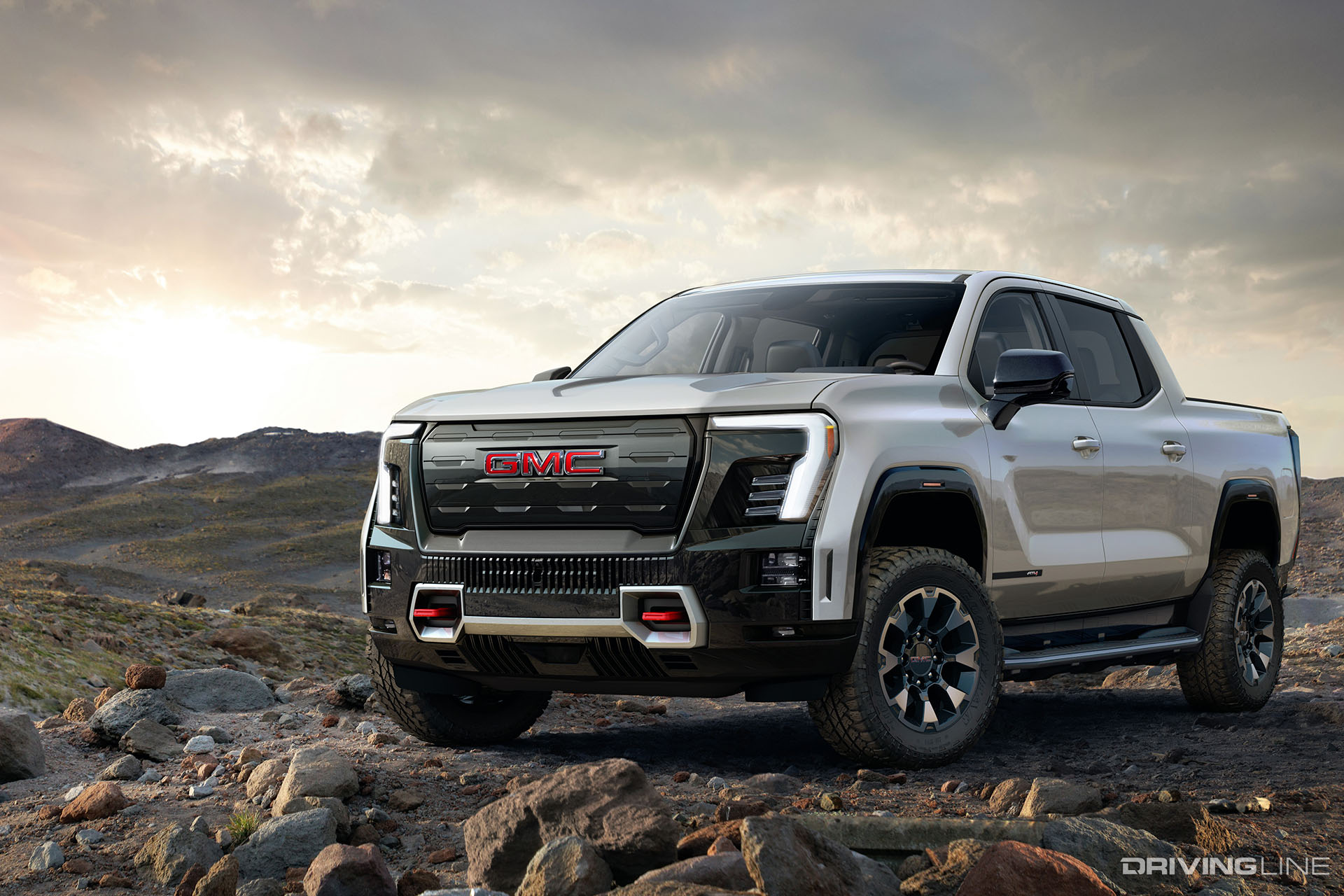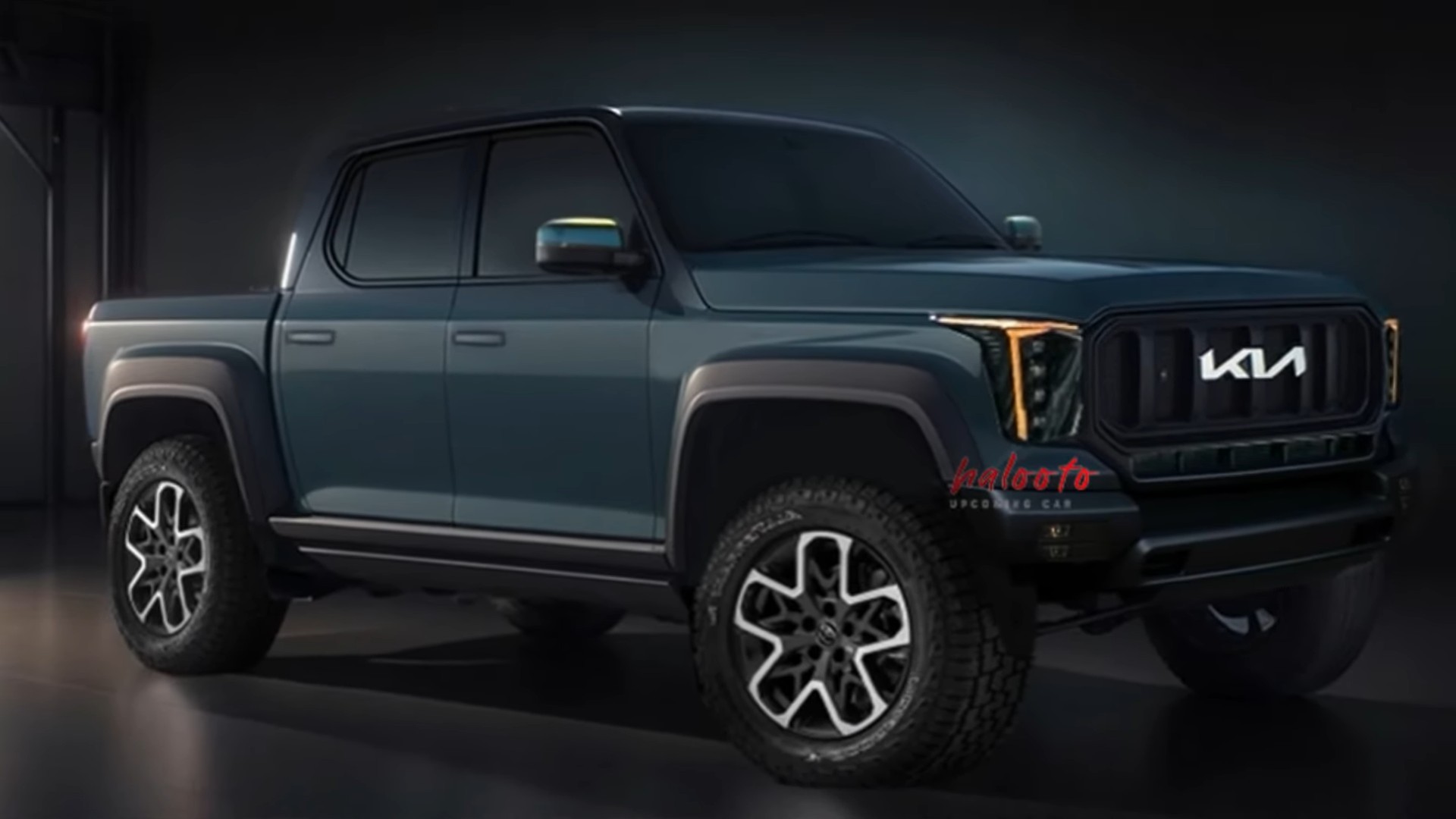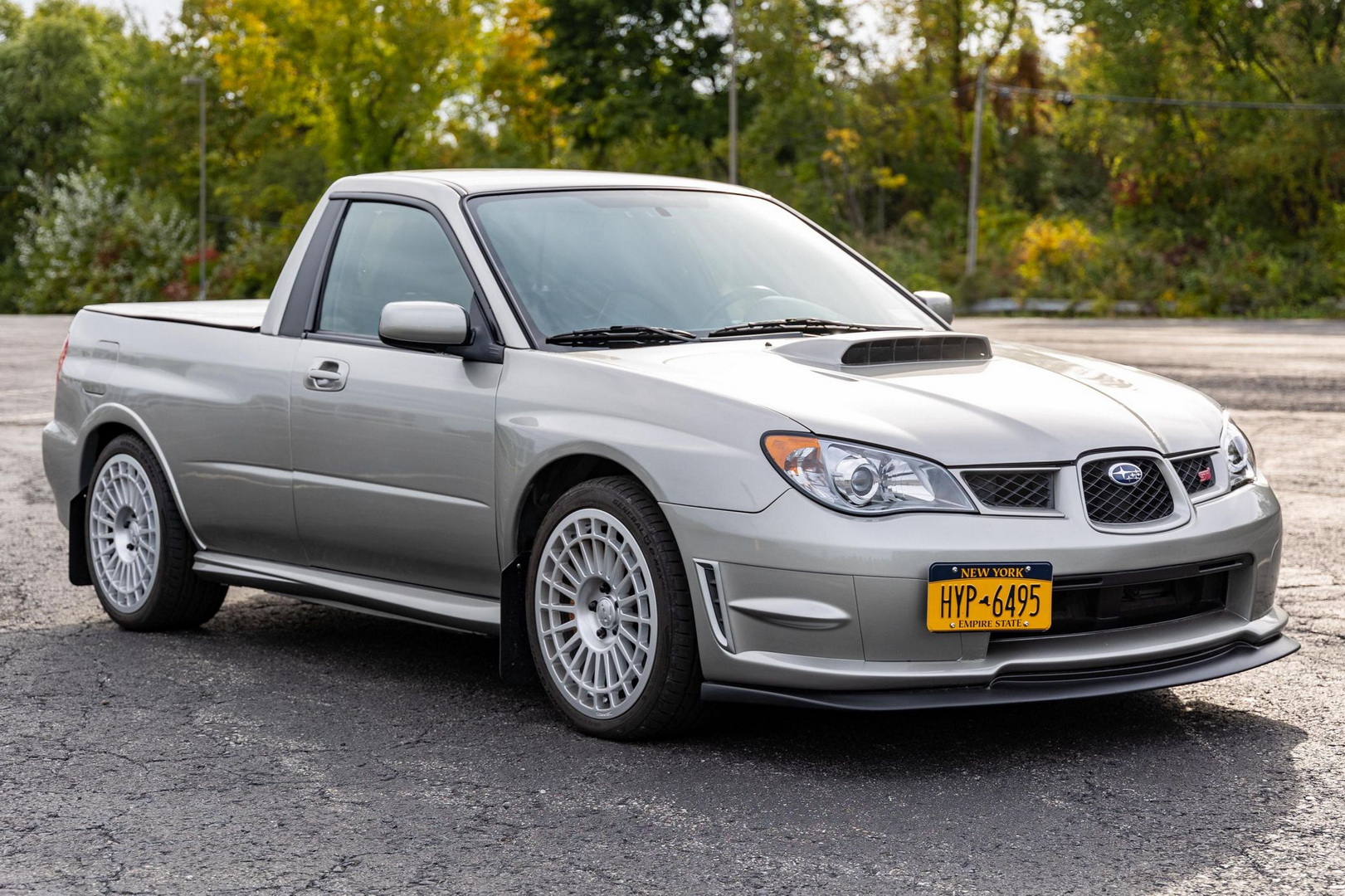Pickup Trucks Lease: Your Comprehensive Guide to Driving Smart pickup.truckstrend.com
In the vast landscape of automotive options, pickup trucks stand out for their unparalleled versatility, rugged capability, and commanding presence. From hauling equipment for a job site to towing a weekend camper, or simply serving as a robust daily driver, pickups are an indispensable tool for many. However, the decision to acquire one often comes with a hefty price tag. This is where Pickup Trucks Lease emerges as a compelling and increasingly popular alternative to outright purchase.
Leasing a pickup truck means you essentially pay for its depreciation over a set period, rather than buying the entire vehicle. This financial arrangement offers a unique blend of flexibility, affordability, and access to the latest models, making it an attractive option for individuals, small businesses, and large fleets alike. If you’re considering a new truck but want to avoid the full commitment of ownership, understanding the nuances of a pickup truck lease is your first step towards driving smart. This comprehensive guide will navigate you through every aspect of leasing, ensuring you make an informed decision tailored to your needs.
Pickup Trucks Lease: Your Comprehensive Guide to Driving Smart
What Exactly is a Pickup Truck Lease?
At its core, a pickup truck lease is a long-term rental agreement. You, the lessee, pay a fixed monthly amount to the lessor (dealership or financial institution) for the use of the vehicle over a specified term, typically 24 to 48 months. Unlike buying, where your payments go towards owning the truck outright, lease payments cover the truck’s depreciation during your usage period, plus a finance charge.
Key terms you’ll encounter include:
- Capitalized Cost: This is essentially the selling price of the vehicle that the lease is based on. Negotiating this down can significantly lower your payments.
- Residual Value: The estimated value of the truck at the end of the lease term. A higher residual value generally leads to lower monthly payments.
- Money Factor: Similar to an interest rate, this is the finance charge applied to the lease. It’s expressed as a small decimal (e.g., 0.00250) and can be converted to an equivalent annual percentage rate (APR) by multiplying by 2400.
- Lease Term: The duration of the lease, usually in months.
- Mileage Allowance: The maximum number of miles you’re permitted to drive annually without incurring penalties. This is particularly crucial for pickup truck users.
- Wear and Tear: Guidelines defining acceptable cosmetic and mechanical condition at lease end. Excessive damage will result in charges.

Understanding these terms is fundamental to deciphering lease agreements and ensuring you’re getting a fair deal.
The Advantages of Leasing a Pickup Truck

Leasing a pickup truck offers a suite of benefits that can make it a more appealing option than purchasing, especially for certain lifestyles or business models:
- Lower Monthly Payments: Since you’re only paying for the depreciation, lease payments are typically significantly lower than loan payments for the same truck. This frees up cash flow.
- Drive a Newer Model More Often: Leasing allows you to upgrade to a brand-new truck every few years, giving you access to the latest technology, safety features, and fuel efficiency improvements without the hassle of selling your old vehicle.
- Lower Upfront Costs: Leases often require less money down compared to a purchase, making it easier to get into a new truck with minimal initial outlay.
- Warranty Coverage: Most lease terms align with the manufacturer’s bumper-to-bumper warranty, meaning you’re covered for major repairs throughout your lease period, reducing unexpected maintenance costs.
- Tax Benefits for Businesses: For businesses, lease payments can often be deducted as an operating expense, offering significant tax advantages compared to depreciating a purchased asset. Consult a tax professional for specifics.
- No Resale Hassle: At the end of the lease, you simply return the truck to the dealership (assuming it meets mileage and wear-and-tear guidelines). There’s no need to deal with trade-in values, selling privately, or depreciation losses.

These advantages highlight why leasing is a strategic financial choice for many who need the utility of a pickup truck without the long-term commitment of ownership.
Important Considerations Before You Lease
While attractive, leasing a pickup truck isn’t without its caveats. Being aware of these crucial considerations beforehand can prevent costly surprises:
- Mileage Restrictions: This is arguably the most critical factor for pickup truck users. Lease agreements come with strict annual mileage limits (e.g., 10,000, 12,000, or 15,000 miles per year). Exceeding this limit incurs penalties, often ranging from $0.15 to $0.30 per mile, which can quickly add up. If your usage involves heavy hauling, long commutes, or extensive job site travel, a lease might not be suitable unless you negotiate a higher mileage allowance upfront (which will increase your monthly payment).
- Wear and Tear Guidelines: Lessors have specific guidelines for what constitutes "normal" wear and tear. Dents, scratches, damaged interiors, or unaddressed mechanical issues beyond normal use will result in charges at lease end. Keep your truck well-maintained and address minor damages promptly.
- Early Termination Fees: Deciding to end your lease early can be very expensive. The fees can often amount to several thousands of dollars, making it crucial to be confident in your commitment for the full lease term.
- Insurance Requirements: Lessors often require comprehensive and collision insurance with higher coverage limits than you might typically carry, protecting their asset. This can lead to slightly higher insurance premiums.
- End-of-Lease Options: Understand your choices:
- Return the vehicle: The most common option, assuming you’ve met all lease terms.
- Buy the vehicle: You can purchase the truck at the pre-determined residual value, often plus a purchase option fee.
- Lease a new vehicle: Many lessees simply roll into a new lease with the same dealership.
- Credit Score Impact: To qualify for the best lease rates (lowest money factor), you’ll typically need an excellent credit score (usually 700+). Lower scores may result in higher money factors or require a larger down payment.
Thoroughly evaluating these points against your personal or business needs is essential for a successful leasing experience.
Types of Pickup Truck Leases
While the general concept of leasing remains consistent, there are a few distinctions in lease types:
- Closed-End Lease (Walk-Away Lease): This is the most common type for personal use. The lessor assumes the risk of the truck’s residual value. As long as you stay within the mileage limits and maintain the truck, you can simply return it at the end of the lease without further obligation (hence "walk-away").
- Open-End Lease (Finance Lease): More common for commercial or fleet use. In this type, the lessee (you) assumes the risk of the residual value. If the truck’s market value at lease end is less than the predetermined residual value, you’re responsible for the difference. Conversely, if it’s worth more, you benefit. These leases often offer more flexibility in mileage and customization.
- Commercial Leases vs. Personal Leases: While the underlying mechanics are similar, commercial leases often have different tax implications, allow for higher mileage, and may have different terms to accommodate business needs. Businesses might also find open-end leases more suitable for their asset management strategies.
Understanding which type of lease you’re entering is crucial, especially concerning residual value risk and financial obligations.
How to Lease a Pickup Truck: A Step-by-Step Guide
Leasing a pickup truck can be a straightforward process if you approach it systematically:
- Determine Your Needs: What size truck do you need (mid-size, full-size, heavy-duty)? What capabilities are essential (towing, payload, 4×4)? Which features are a must-have? This will narrow down your model choices.
- Set Your Budget: How much can you comfortably afford for a monthly payment? What’s your comfortable down payment (if any)? Don’t forget to factor in insurance, maintenance (beyond warranty), and fuel.
- Research Models and Deals: Look at various manufacturers (Ford, Ram, Chevrolet, Toyota, GMC, Nissan, etc.). Check manufacturer websites for current lease specials and incentives, which can significantly reduce your costs.
- Understand Lease Terms: Get quotes with specific details: capitalized cost, residual value, money factor, lease term, and mileage allowance. Don’t just focus on the monthly payment. Ask for the breakdown.
- Negotiate: Everything in a lease is negotiable, especially the capitalized cost (the truck’s "price") and sometimes the money factor. Treat it like buying a car; aim for the lowest possible starting price.
- Read the Fine Print: Before signing, meticulously review the entire lease agreement. Understand all clauses related to mileage overage, wear and tear, early termination, and end-of-lease options. Ask questions about anything unclear.
- Insure Your Investment: Secure the required insurance coverage before driving off the lot.
- Plan for Lease End: Keep track of your mileage and maintain the truck well throughout the lease term to avoid unexpected charges.
By following these steps, you’ll navigate the leasing process with confidence and secure a deal that aligns with your financial and practical needs.
Maximizing Your Pickup Truck Lease Experience
To ensure a smooth and cost-effective lease experience, consider these practical tips:
- Stay Within Mileage Limits: This is paramount. Regularly check your odometer. If you anticipate exceeding your allowance, consider pre-purchasing extra miles from the lessor at a lower rate than the end-of-lease penalty, or adjust your driving habits.
- Maintain the Truck Meticulously: Follow the manufacturer’s recommended service schedule. Keep records of all maintenance. Address minor dings, scratches, and interior stains promptly. Professional detailing before lease return can save you money on wear and tear charges.
- Understand Your Lease-End Options Early: A few months before your lease concludes, contact the lessor to discuss your options. This gives you time to research new vehicles, secure financing if you plan to buy, or prepare the truck for return.
- Negotiate the Purchase Price (if buying out): If you decide to buy your leased truck, don’t assume the residual value is non-negotiable. While it’s a fixed number in the contract, market conditions might allow for negotiation, especially if the truck’s actual market value is lower than the residual.
- Consider Lease Swapping: If you need to exit your lease early, some platforms allow you to transfer your lease to another qualified individual. This can be a way to avoid hefty early termination fees.
Potential Challenges and Solutions
Even with careful planning, challenges can arise during a lease. Here’s how to address common ones:
- Challenge: Exceeding Mileage:
- Solution: Monitor your mileage regularly. If you anticipate going over, contact your lessor to see if you can buy additional miles at a discounted rate before the lease ends. Alternatively, consider using an older secondary vehicle for high-mileage trips.
- Challenge: Excessive Wear & Tear:
- Solution: Perform routine maintenance and promptly fix any dents, scratches, or interior damage. Before returning, get the truck professionally detailed and consider minor repairs (e.g., paint touch-ups, tire replacement if tread is low) that might be cheaper than the lessor’s charges.
- Challenge: Needing to Terminate Early:
- Solution: Explore lease transfer services, where another individual takes over your remaining payments. Alternatively, negotiate with the lessor; sometimes they offer incentives to get out of the lease early, or you might have to buy out the lease yourself.
- Challenge: Unforeseen Life Changes (Job Loss, Relocation):
- Solution: Understand your early termination clause fully. Have an emergency fund. Explore lease transfer or negotiating a buyout with the lessor. Some leases may offer protection plans for certain life events.
Pickup Trucks Lease: Estimated Price Table
Please note: These figures are estimates and highly variable. Actual lease prices depend on the specific vehicle trim, current manufacturer incentives, dealership offers, your credit score, market conditions, and negotiation. Always get a personalized quote.
| Pickup Truck Model (Example Trim) | Lease Term (Months) | Annual Mileage Allowance | Est. Monthly Payment ($0 Down) | Est. Due at Signing (Fees + First Payment) | Total Est. Cost (Over Lease Term) |
|---|---|---|---|---|---|
| Ford F-150 (XLT) | 36 | 10,000 | $450 – $600 | $2,000 – $4,000 | $18,000 – $25,000 |
| Ram 1500 (Big Horn) | 36 | 12,000 | $400 – $550 | $1,800 – $3,500 | $16,000 – $22,000 |
| Chevrolet Silverado 1500 (LT) | 36 | 10,000 | $420 – $580 | $1,900 – $3,800 | $17,000 – $24,000 |
| Toyota Tacoma (SR5) | 36 | 12,000 | $350 – $480 | $1,500 – $3,000 | $14,000 – $19,000 |
| GMC Sierra 1500 (SLE) | 36 | 10,000 | $480 – $650 | $2,200 – $4,500 | $19,000 – $27,000 |
| Nissan Frontier (SV) | 36 | 10,000 | $320 – $450 | $1,400 – $2,800 | $13,000 – $18,000 |
Frequently Asked Questions (FAQ)
Q: Can I customize a leased pickup truck?
A: Generally, minor, easily reversible customizations (e.g., floor mats, bed liner inserts) are acceptable. Major modifications (e.g., lift kits, engine tuning, permanent bed covers) are usually prohibited as they can affect the truck’s residual value. Always check your lease agreement or ask your lessor first.
Q: What happens if I go over my mileage?
A: You will incur a per-mile penalty, typically ranging from $0.15 to $0.30, for every mile over your contracted allowance. This can be a significant cost, so it’s crucial to monitor your usage.
Q: Is insurance more expensive for a leased truck?
A: Lessors often require higher liability, collision, and comprehensive coverage than you might otherwise carry, as they need to protect their asset. This can result in slightly higher insurance premiums compared to a purchased vehicle.
Q: Can I buy my truck at the end of the lease?
A: Yes, most closed-end leases include a purchase option. The price is typically the predetermined residual value plus any purchase option fees. You can usually finance this amount if you don’t want to pay cash.
Q: What credit score do I need to lease a pickup truck?
A: To qualify for the most favorable lease rates (lowest money factor), you generally need a good to excellent credit score, usually 700 or higher. Lenders may approve leases for lower scores but often with less attractive terms.
Q: Are there tax benefits for leasing a pickup?
A: For businesses, lease payments can often be treated as an operating expense and may be tax-deductible. This can be a significant advantage over purchasing, where you typically deduct depreciation. Consult a qualified tax professional for advice specific to your situation.
Q: What’s the best lease term?
A: The "best" term depends on your needs. Shorter leases (24-36 months) mean you get a new truck more frequently and stay within warranty coverage, but monthly payments might be slightly higher. Longer leases (48+ months) can lower monthly payments but might mean you’re out of warranty for part of the term and could face higher wear and tear charges.
Conclusion: Driving Smart with a Leased Pickup
Leasing a pickup truck offers a compelling alternative to traditional purchasing, providing unmatched flexibility, typically lower monthly payments, and the perennial excitement of driving a new model. It allows individuals and businesses to leverage the immense utility of a modern pickup without the long-term financial commitment and depreciation risks associated with ownership.
However, a successful lease hinges on understanding the nuances: the importance of mileage limits, adherence to wear and tear guidelines, and a thorough review of the lease agreement’s fine print. By carefully assessing your needs, budgeting effectively, and negotiating wisely, a Pickup Trucks Lease can be a highly strategic and cost-effective way to get behind the wheel of the powerful, versatile vehicle you need. Drive smart, drive leased.



